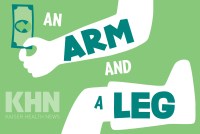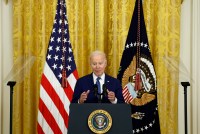Latest Morning Briefing Stories
An Arm and a Leg: A $229,000 Medical Bill Goes to Court
In 2014, Lisa French had spinal surgery. Before the operation, she was told she would have to pay $1,337 in out-of-pocket costs and that her insurance would cover the rest. However, the hospital ended up sending French a bill for $229,000. When she didn’t pay, it sued her. The case went all the way to […]
A Change for Next Year: Get Health Insurance Information Using California’s Tax Form
California will join a growing number of states in using tax forms to point people toward lower-cost health coverage available through state insurance marketplaces.
Montana May Require Insurers to Cover Monitoring Devices for Diabetes
Montana is one of several states considering expanding coverage of continuous glucose monitors, but insurance companies and some providers argue that not all people with diabetes need them.
The Big Squeeze: More Enrollees and Smaller Networks Plague Some ACA Plans
Despite record enrollment in health insurance plans under the Affordable Care Act, some consumers who bought coverage and agents who helped them do so have had a tough start to the new year: Many say it’s hard to find an in-network doctor or hospital.
An Arm and a Leg: A Doctor’s Love Letter to ‘The People’s Hospital’
Could a charity hospital founded by a crusading Dutch playwright, a group of Quakers, and a judge working undercover become a model for the U.S. health care system? In this episode of the podcast “An Arm and a Leg,” host Dan Weissmann speaks with Dr. Ricardo Nuila to find out. Nuila’s new book, The People’s […]
Judge’s Decision Would Make Some No-Cost Cancer Screenings a Thing of the Past
A U.S. District Court ruling overturned the section of the Affordable Care Act that makes preventive health services — from colonoscopies to diabetes screenings and more — available at no cost to consumers.
La decisión podría afectar los exámenes de detección sin copago y servicios preventivos similares que la mayoría de los estadounidenses con seguro tienen como parte de sus planes de salud.
KFF Health News' 'What the Health?': A Judicial Body Blow to the ACA
A federal judge in Texas has dealt a big setback to the Affordable Care Act. The same judge who tried in 2018 to declare the entire ACA unconstitutional has now ruled that the law’s main provisions for preventive care are unconstitutional and, therefore, unenforceable nationwide. Also this week, North Carolina became the 40th state to expand Medicaid under the ACA. Alice Miranda Ollstein of Politico, Rachel Cohrs of Stat, and Sandhya Raman of CQ Roll Call join KHN chief Washington correspondent Julie Rovner to discuss these issues and more.
ER’s Error Lands a 4-Year-Old in Collections (For Care He Didn’t Receive)
A Florida woman tried to dispute an emergency room bill, but the hospital and collection agency refused to talk to her — because it was her child’s name on the bill, not hers.
Obamacare at 13: Biden and a KHN Reporter Remember
The White House gathered the people who helped pass the Affordable Care Act 13 years ago — partly to congratulate themselves but also to emphasize that they still have much work to do to make health care affordable.













